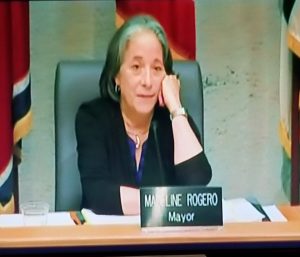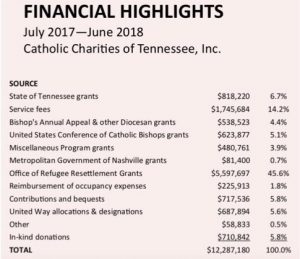When a reader sent me a link the other day to a story I had just written about, and another said the following in a comment:
States need to take it upon themselves to regulate immigration and refugee resettlement ..D.C. can not tell states what to do unless weak politicians allow it.
I knew that it was time to take a break from writing this blog.
It became clear that people aren’t reading and aren’t doing what they need to be doing if they really want to slow immigration and save their communities from becoming a depository for needy people from the third world.

We all want someone else to save us.
We expected President Trump to save us, but he could only do so much.
I’ve been here before. I don’t want this post to get too long, but decades ago I became a conservative when the National Park Service working with preservation groups and local politicians wanted my farm and others nearby to be added to a national park.
Long story, it took years, but we prevailed. It required hard work gathering facts, publicizing them, and we had to weather a lot of public acrimony.
For a number of years, in the late 1980s into the early 1990s, I wrote a newsletter, LOL! the old fashioned kind that needed printing and mailing before we had such an easy way to get information out. It was called Land Rights Letter and I wrote about the federal (communist!) land grab that was happening everywhere at the time.
Eventually I had to stop because people all over the country would call and ask me to help them save their land from the federal government. I was here to give advice, but it would be up to them to do the work. And, I discovered that they really didn’t want to do what they needed to do, they wanted me to do it for them.
I don’t mean to pick on the reader who sent the comment above, but what the heck have I been writing about for these nearly 14 years at RRW? And, who is electing weak politicians at all levels of government?
The Socialist Democrats have been working diligently at the local and state level to put their people in place and now here they are at the top of the heap almost everywhere.
So, I better get to my point!
It is now up to you!
Update! See my tutorial on how to compete with the Left! I am going to add to it weekly and it will be available in my sidebar here at RRW and at ‘Frauds and Crooks.’
RRW is a resource for your education and hopefully the nearly 10,000 posts I’ve written since 2007 will be a resource as you do your local organizing. If you are new, start researching my category ‘Knowledge is Power’ because having facts is the first requirement of local community organizing.
Local organizing is the only way you are going to slow the demographic change the Left has in store for you. We lost Trump, Congress is a total waste, most governors are chickens, but maybe there is hope for your state legislature and your city government.
The most important place for you to get politically active is in your own home town where exposing what the local politicians have in store for you is the first action step you must take.
That brings me to Stephen’s story. Stephen is a reader who sent me this report on what happened in his Texas home town.
He posted his comment to this post:
Court of Appeals Rules: YOU Have No Say in Whether YOUR Town Will Accept Refugees
Stephen….
I’m going to see if I can make this a quick story as alternatives to fighting this stuff seem slim.
I was aware of your site during the Obama years and there were other articles out there about the Affirmatively Furthering Fair Housing Rule when this took place.
I received a letter from the zoning committee informing me that gas station/carwash/food mart was going up kitty corner to my property and if I wanted to object I had, I believe 10 days, to show up at the next meeting and make the objection. I was the only homeowner that had to be legally notified because of the proximity to the proposed building site.
We live in a small city of approximately 3,000 people and for the most part zoning laws are strict. You have to build on 3/4 of an acre lot minimum to get in or buy an existing home which is set up the same way. Anyway we have a gas station nearby where they wanted to build and another not far from it and both sell convenience items so this didn’t seem to make sense to add a third in between the two.
I went to the city’s web page and looked up the minutes from the city council meetings and, lo and behold, I find a 55-page power point presentation for the building of what equates to small college-sized campus looking thing. Nice, snazzy looking plan and made up by a local college from the big city.
Essentially it’s about 10 large-sized apartment buildings with a proposed train station. (They’ve been trying to get light rail in this area for years but it keeps getting voted down, if this went through it might of been enough to revive that project).
The zoning change for the gas station/carwash/food mart thing is on the very edge of the foot print for this large development, not part of it, but they had to know about it, especially since they are from the west coast and this is Texas.
Also the only people who know about this here are a small handful that were at that city council meeting and no one else. Additional information on this: it is right across the train track is an industrial park so it’s kind of obvious that who ever was going to fill those apartment buildings would likely be working at that industrial park.
The major concern was that city was about to allow lower income people into the city. This new population would add about an easy one third to our population and could easily change the demographics of our city and instead of being a red district this could of been enough to change it to blue.
Word went out pretty quickly. No talk of race, refugees or anything like that because it was never mentioned by them so not by us either, but we fought this and beat it back based on a variety of issues, the foremost being how the city hadn’t really good answers for what they were trying to rush through.
The train station wasn’t a firm thing, sewer would be required, traffic congestion would become a problem and more. Basically people were just saying hell no, we live here to get away from the city and don’t want a city moved to us, which is what this was.
Bottom line is pay attention to what’s happening in your zoning and city council meetings. Raise the flag early or these things become unstoppable.
I’m not sure how a Biden EO would of effected this if it was announced up front, what the construction was for.
Currently the land is still undeveloped but the city has put together a master plan to avoid most of our concerns though there are still small cottage sized units of housing planned for (about half of the original plan) with out developers yet, so we could find ourselves back in the same or similar situation. [Stephen will be watching, I am sure!—ed]
Stephen told you the most important thing you can do now is to find out what is being planned in secrecy in your community. It might not be a plan for refugees yet, but the housing he describes will, you know!, be back as long as the Dems control all levers of government. See Biden housing initiative described at The Federalist.
If you live anywhere near any of the towns and cities on the maps in this post below, or even within a hundred mile radius of one of them, they will place more refugees in your community.
Getting the information early, spreading the word to your fellow citizens, and creating a public outcry, as Stephen did, is all you have going for you at the moment. The resettlement agencies tend to stay away from potential resettlement sites if there is sufficient public opposition (I know that from personal experience), but the trick is to find out as early as possible what the plan is for your community.
Hint! One thing you can do is to religiously follow your local government meetings and have someone join your local Interfaith group to get information because they will be the first to lobby for refugees for your town or city.
And, you better get to work booting the Dems from office, especially at the local level, or move to another part of America where you will be free of them (at least for now).
See the maps in this post:
During Trump’s Presidency Many Refugee Agency Affiliates Closed
I am not going away completely. I’ll post here if something strikes me as vital, or of interest to me, to post. And, I’m still at Frauds and Crooks where I have more readers and more leeway to write on a variety of subjects because frauds and crooks are everywhere!






